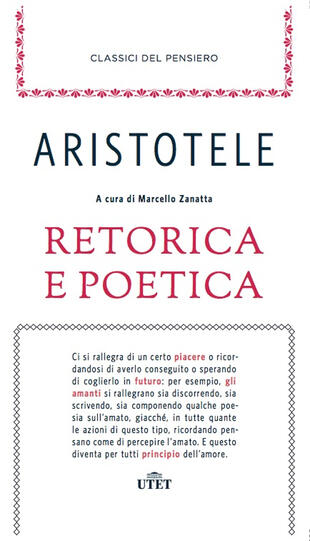

Sinossi
Scritte nel IV secolo a.C., "Retorica e poetica" - le opere che Aristotele ha dedicato all'argomentazione persuasiva e ai criteri sottesi alla produzione poetica - sono due dei trattati filosofici che hanno influenzato maggiormente la cultura occidentale. Tradizionalmente esclusi dall'"Organon" - l'insieme degli scritti logici di Aristotele - ma considerati come sue importanti appendici già da molti commentatori antichi e medioevali (da Al-Ghazali a Tommaso d'Aquino, passando per Alberto Magno e Ruggero Bacone), i due testi sono stati oggetto di rinnovata attenzione negli ultimi decenni, nel momento in cui le più acute intuizioni di Aristotele sono state, di volta in volta, applicate all'analisi della comunicazione di massa, alla retorica politica, alla teoria del romanzo, oltre che allo studio di gran parte dei nuovi linguaggi artistici e comunicativi, come quelli adottati dal cinema e dai media. Centrale, in entrambe le opere, è l'analisi delle passioni: ira e paura, audacia e benevolenza, vergogna e compassione sono fondamentali sia in quella "scienza del verosimile" teorizzata - attraverso i concetti di "mimesi" e "catarsi" - nei più noti passaggi della "Poetica", sia nell'"arte della persuasione" insegnata dalla "Retorica".
- ISBN:
- Casa Editrice:
- Pagine: 832
- Data di uscita: 15-09-2015

